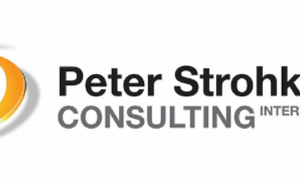A few years ago I was involved in some Mystery Shopping with a fabulous client. They are a huge business turning over a lot of money, but they employed us to work with their sales force because they felt that their call centre in particular was not converting enough of the enquiry that their marketing was generating.
It was a fun project and we found for the most part the consultants were excellent. The product they were selling was incredible, their knowledge and enthusiasm for their product was second to none, and they were genuinely delightful people who could hold an interesting conversation and make the caller feel special.
I get a bit nervous making mystery shopping calls because I feel like I will deal with someone amazing who will sell so effectively I will whip out my credit card and make a purchase. One of the consultant very nearly did this to me – she painted such a clear picture I desperately wanted to be the one in it – but in most cases I had nothing to worry about. It became a predictable pattern that the conversation would go well until the end of the call and then all of a sudden the consultant would completely fall to pieces. Very few of the consultants displayed any confidence around closing the sale and most calls would end with “so, have a think about it and call me back in a few days” or “here is my direct line for when you are ready”. Very few consultants took the lead; and as a potential customer, even though the rest of the call was exceptional, I hung up feeling like I was dealing with an excellent information service rather than a qualified sales person.
In general terms, closing the sale is the most nerve-wracking part of the sales process for the vast majority of salespeople, and I have found it is generally the missing link for those consultant who are not converting their potential. I often get the feedback that salespeople don’t want to be pushy, they don’t feel comfortable forcing someone to make a decision to hand over the cash. But these days, closing the sale isn’t being pushy, closing the sale is being savvy and respectful. The customer wants to you remain in control, and when you don’t it causes a lot of frustration on the buyers’ behalf.
If you feel lost at the end of a sales consultation, here are a couple of tips to help you control the close.
First of all, treat every customer like they are going to buy. The majority of people who touch our businesses these days already have the information they need and already have an idea about how much it is going to cost them. Most of them have already made a buying decision, and that is why they are coming to you. If you treat them like someone who is shopping around, it is not only annoying, it is patronising. Give your customers the respect they deserve and when they come to you, make it your mission to help them buy something that will suit.
Don’t wait until the end of the consultation to close a sale. These days it is imperative that we ask closing questions throughout the consultation, and ensure we are closing at every step of the process. We can learn a lot from the way the internet closes a sale – at the end of every page, you have to choose yes or no before you can move on. There is no button down the bottom asking if you would like to think about it, or speak to your wife before making a decision. We need to do the same – closing at each step is much more powerful than waiting until the end and crossing your fingers you got everything right.
Make sure you have some strong closing questions prepared. “Do you want to have a think about it?”, “Have we covered everything?” or “How does that sound?” are too ambiguous in the current market. Your close should be a closed ended question that is constructed to get a “yes” response. For example, rather than “Did you want to buy this today?” you could say “So, I feel like we have covered everything and found something that suits your needs perfectly. Would you like to go ahead and lock this in now?” That is a much stronger and more confident close that is very likely to get a yes response.
Have a think about some effective closing questions for each stage of your typical consultation. Jot them down, and if you need to, rewrite them so that you have a few strong questions under your belt that are likely to elicit a yes.
Lastly, remember that the buyer has not come to you necessarily to get information or an idea of price. They usually need help making a decision and they need guidance in order to make their purchase. You need to show your appreciation that you have the opportunity to help, and make it your intention for them to leave you with something that is perfect for them. Forget about how much you are going to make, or how far you are off or over your sales targets. If you really focus on their need and remain in control, the numbers will take care of themselves.
Between managing Auridian Training & Consulting and travelling as an international speaker and business consultant, Meg Salter is the proud mum of two delicious and spirited young children who keep her happy, grounded and always in need of a beverage.
If you would like more information about how to control the close and sell effectively in the new market contact Meg on meg@megsalter.com.au or call her on 0414 503 887.


